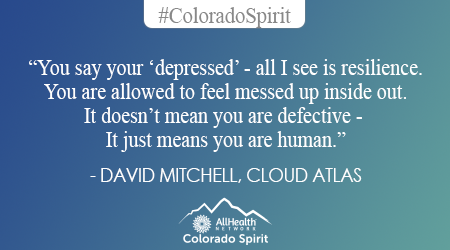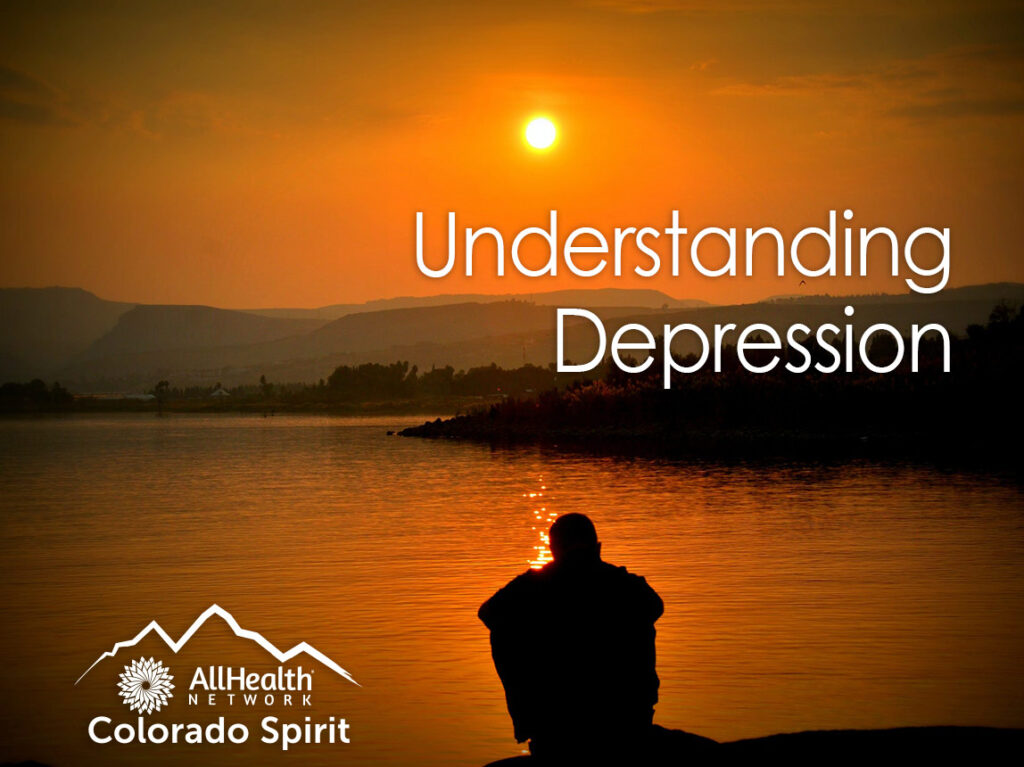Many large scale surveys indicate that the COVID-19 pandemic is impacting our behavioral health in significant ways. In past weeks, we have explored experiences of anxiety and worry and suggested some coping strategies. This week we want to dive in and talk about depressed mood many of us may be noticing.
While depression can look different for different people, this is a list of from the Anxiety and Depression Association of America of the more common symptoms of depression:
- Persistent, sad, anxious or “empty” mood
- Feelings of hopelessness, pessimism Feelings of guilt, worthlessness, helplessness
- Loss of interest or pleasure in hobbies and activities, including sex
- Decreased energy, fatigue, feeling “slowed down”
- Difficulty concentrating, remembering, making decisions
- Insomnia, early morning awakening, or oversleeping
- Low appetite and weight loss or overeating and weight gain
- Thoughts of death or suicide, suicide attempts
- Persistent physical symptoms that do not respond to treatment, such as headaches, digestive disorders and pain for which no other cause can be diagnosed
What is difficult about this list of symptoms is that most of us have likely experienced some of these during the pandemic because many of them are understandable and natural reactions stress. Many of us will struggle to try to determine if these experiences are situational and likely to fade over time. Our recommendation is to try not to get into that head space though, and instead, consider the impact any of these experiences have on your functioning. If the symptoms are impacting your productivity, your relationships, or are bothering you in any way, we recommend you find ways to take an active stance on coping.
Try a few of these tips
Connect! – We keep saying it, but connection with people and practices that are meaningful is one of the most beneficial things any of us can do for our behavioral health. The challenge is that depression makes connecting difficult. We might not have the energy to engage with others or might be caught up in a cycle of negative thoughts that makes connecting a challenge. Do your best to act opposite to the urge to isolate though. For some of us that means enlisting a trusted other to reach out to us. For others, it might mean engaging for brief amounts of time.
Find ways to be active and increase your contact with positively rewarding and meaningful activities – Whether this is exercising (which we know can provide a mood boost – see our article from a few weeks ago about exercise and mood), engaging in a hobby, or getting out in nature, we know that small actions influence our mood over time. Behavioral activation is a strategy that can help many of us engage in meaningful activities when our motivation levels are low due to depression. Check out this article for an explanation of this strategy.
Be mindful of your media habits – Behaviors like “doomscrolling” can get any of us in negative headspaces. If we are experiencing depression, these habits can be even more destructive. Check out this article from NPR about how this behavior impacts anxiety levels and some concrete strategies to change this behavior.
Be mindful of “checking out” or avoidance strategies and work to limit them – When depressed many of us might turn to drugs, alcohol, excessive sleep, or social isolation to cope. The challenge with these strategies is that while they may make us feel different in the short-term, they can create longer term challenges and often exacerbate depression.
Practice anxiety management techniques – like breathing, meditation, relaxation exercises, and thought reframing. Anxiety and depression can have a lot in common (and for some of us they come hand in hand). Any strategy to help with stress and anxiety can produce shifts for symptoms of depression too.
Consider if talking to a behavioral health professional might help – There are many effective, non-medication, strategies that treat depression. Interventions like Cognitive Behavioral Therapy and Behavioral Activation have a great deal of research support for being time-limited treatments for depression. If connecting with a behavioral health professional is not feasible, there are many self-help resources that cover some of the basics of these approaches (try a quick internet search for either of these terms).
A word about thoughts of suicide: While thoughts like this are more common than most of us realize, they are serious. If you or someone you care about are having thoughts of suicide, please reach out for professional support. While not all people who have thoughts of suicide will need hospitalization, these thoughts are signs of a crisis and formal support to develop a plan for coping with these thoughts and staying safe is recommended. Formal support can also help us realize we are not alone. If you are not connected with a behavioral health support, please contact Colorado Crisis Hotline at 1-844-493-8255 (TALK) or text TALK to 38255.
Would speaking to someone help?
AllHealth Network, along with other community mental health centers, is continuing to provide services via telehealth and by phone. Our Crisis Walk-in Center remains open 24/7 and offers in-person care to those experiencing a mental health crisis. For more information and to get connected with our services, please call 303-730-8858. To learn more about what other community mental health centers are doing, please visit the Colorado Behavioral Health Council COVID-19 website.
If you are experiencing a mental health crisis and are in need of immediate assistance, please call the Colorado Crisis Hotline at 1-844-493-TALK (8255) or text TALK to 38255
How do you know if you’re experiencing a mental health crisis? Click here to learn about mental health crisis warning signs to look out for from the National Alliance on Mental Illness (NAMI)


